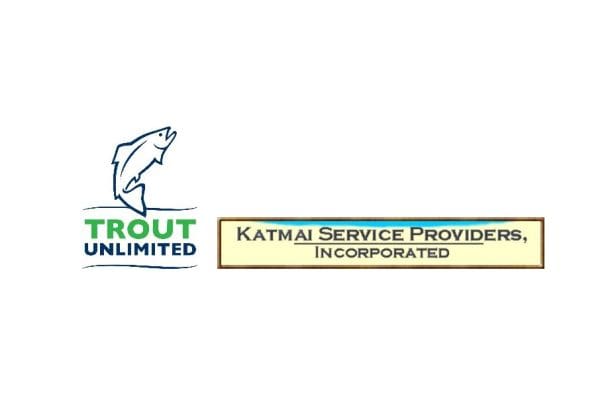Landmark decision finalizes safeguards for headwaters of Bristol Bay, Alaska after 13 years of science, public support

EPA’s Clean Water Act 404(c) Final Determination prohibits and restricts mine waste discharge in the Bristol Bay watershed and safeguards fish, rivers and a way of life; move is celebrated by Alaskans, anglers, hunters.
WASHINGTON, D.C.—Today, the Environmental Protection Agency (EPA) publicly announced a Clean Water Act 404(c) Final Determination finding that mine waste would harm the Bristol Bay watershed, and restricted its discharge into rivers, streams and wetlands of the North and South Fork of the Koktuli River and Upper Talarik Creek, rivers in the vicinity of the Pebble deposit.
The decision effectively prevents development of the long-proposed Pebble gold and copper mine, which for decades has threatened the world’s most productive wild sockeye salmon runs, Alaska’s strongest Chinook salmon run, and the region’s famed sport and commercial fishing industries.
“This is an incredible day for the Bristol Bay region.” said Nelli Williams, Alaska director for Trout Unlimited. “For more than a decade, the science has remained strong and public support has been unwavering for Clean Water Act protections. An Alaska-sized thank you to the Biden Administration and the EPA for listening to Alaskans, Tribes, anglers and hunters, and for doing the right thing for a world-class renewable resource and the people and jobs that depend on it. The work in Bristol Bay isn‘t done, but today is a milestone to be celebrated.”
“Pebble Mine would destroy massive amounts of water and land in the heart of a wild, pristine and productive landscape. These safeguards are reserved for special places and Bristol Bay fits the bill perfectly. While there is more work to be done, with this news we can begin to work toward a bright future for Bristol Bay without the shadow of the Pebble mine constantly hanging over our heads,” said Brian Kraft, president of Katmai Service Providers and operator of two Bristol Bay fishing lodges. “This sends yet another very strong message to the Pebble Partnership: your mine is not wanted here; we have better plans for Bristol Bay.”
“Clean Water Act 404(c) protections have always been a common-sense safeguard for Bristol Bay. Today, the people and businesses in Alaska and across the country who stood up for Bristol Bay should take a bow, because their efforts have protected the world’s most important wild salmon runs and the communities that depend on them,” said Chris Wood, president and CEO of Trout Unlimited. “It’s long past time for Pebble to recognize that it will never have community or legal standing to develop this mine. Now, it’s time for us to further strengthen protections for the entire Bristol Bay watershed that match the scope of the threat to this special place.”
Today’s news culminates a 13-year plus process to protect Bristol Bay from the proposed Pebble mine. Section 404(c) of the Clean Water Act gives the EPA the authority to restrict, prohibit or deny mine waste from being discharged into waters of a region if it determines it will have unacceptable adverse impacts on the fishery or water resources. Alaskan Tribes, sportfishing groups and commercial fishermen first petitioned the EPA to act in 2010. After numerous rounds of scientific assessment and public comment, including support from hundreds of businesses and organizations, the proposed protections were released in 2014, but never finalized.
In 2019, the EPA under the Trump administration sought to withdraw the 2014 Proposed Determination for Bristol Bay—a sudden decision without scientific justification and disregarding public input. Trout Unlimited challenged the EPA’s decision as arbitrary and capricious and contrary to the Clean Water Act’s governing standard in court. In July 2021, the Ninth Circuit Court of Appeals ruled in favor of TU, finding that the EPA could withdraw a proposed determination only if the discharge of materials would be unlikely to have an “unacceptable adverse effect.”
Following the lawsuit, EPA Administrator Michael Regan committed to working towards protections for the fishery. In May 2022, the EPA issued a revised Proposed Determination that reflected the analysis of new scientific data. This summer over a half a million comments were submitted to the EPA in support of finalizing Clean Water Act protections. In all, over four million comments submitted during seven public input periods supported the finalization of 404(c) protections for the Bristol Bay watershed.
The Final Determination comes just six months after the Bristol Bay region set a new record with 79 million sockeye salmon returning to its rivers, streams and lakes. The 404(c) safeguards add another important layer of protection for the Bristol Bay watershed against the proposed Pebble mine. The Clean Water Act 404 permit for the proposed mine was denied by the Army Corps of Engineers in 2020. In December 2022, Pedro Bay Corporation finalized a deal to place 44,000 acres of land into conservation easements, complicating the primary proposed road corridor for Pebble mine.
Trout Unlimited, the nation’s oldest and largest coldwater fisheries conservation organization, is dedicated to caring for and recovering America’s rivers and streams, so our children can experience the joy of wild and native trout and salmon. Across the country, TU brings to bear local, regional, and national grassroots organizing, durable partnerships, science-backed policy muscle, and legal firepower on behalf of trout and salmon fisheries, healthy waters and vibrant communities. In Alaska, we work with sportsmen and women to ensure the state’s trout and salmon resources remain healthy far into the future through our local chapters and offices in Anchorage and Juneau.
Katmai Service Providers represents 64 Alaska fishing, hunting, bear viewing and tourism businesses that operate in the Bristol Bay region. The group is dedicated to resource protection through stewardship, promoting public access, fostering cooperation among users, participating in future development planning, promoting safety and education and enhancing Katmai National Park recreational activities. Brian Kraft is the president of the KSP and the owner of two sportfishing lodges in southwest Alaska, one in Igiugig, Alaska and one near Dillingham, Alaska. https://katmaipark.org/
